Insider Trading: Legal, Economic, and Ethical Implications Report
VerifiedAdded on 2023/01/19
|7
|725
|40
Report
AI Summary
This report provides an overview of insider trading, defining it as the illegal practice of buying or selling a company's stock based on non-public information. It explores the legal implications, detailing criminal and civil penalties imposed by the SEC, including prison sentences and substantial fines. The report examines the economic and social impacts, arguing that insider trading can affect market efficiency and shareholder value. Furthermore, it discusses the ethical implications, highlighting the potential for conflicts of interest and inequalities among investors. The conclusion emphasizes the illegality of insider trading and the severe consequences for those involved, reinforcing the importance of ethical conduct and adherence to financial regulations. References from relevant academic journals are also included.
1 out of 7

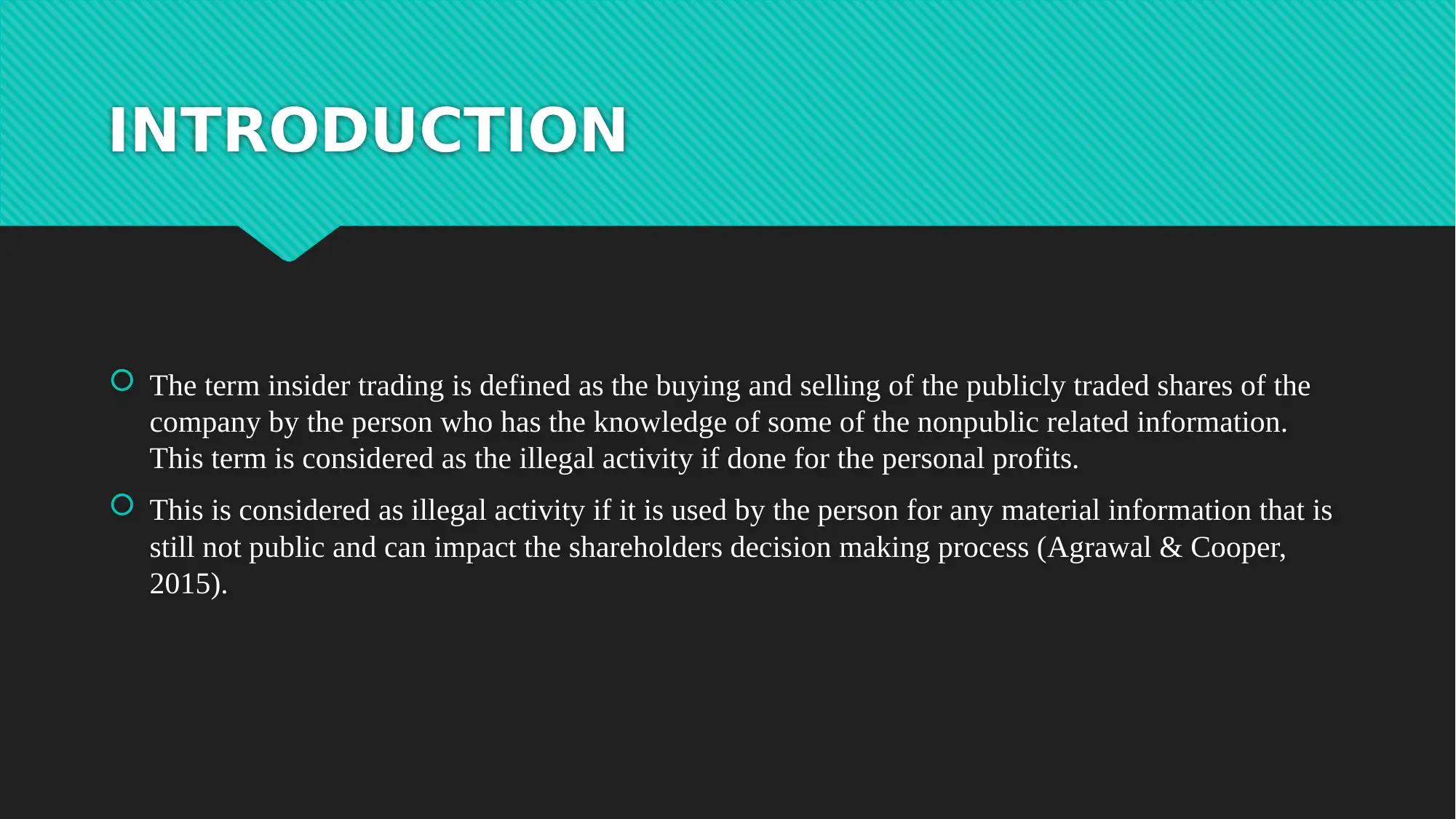
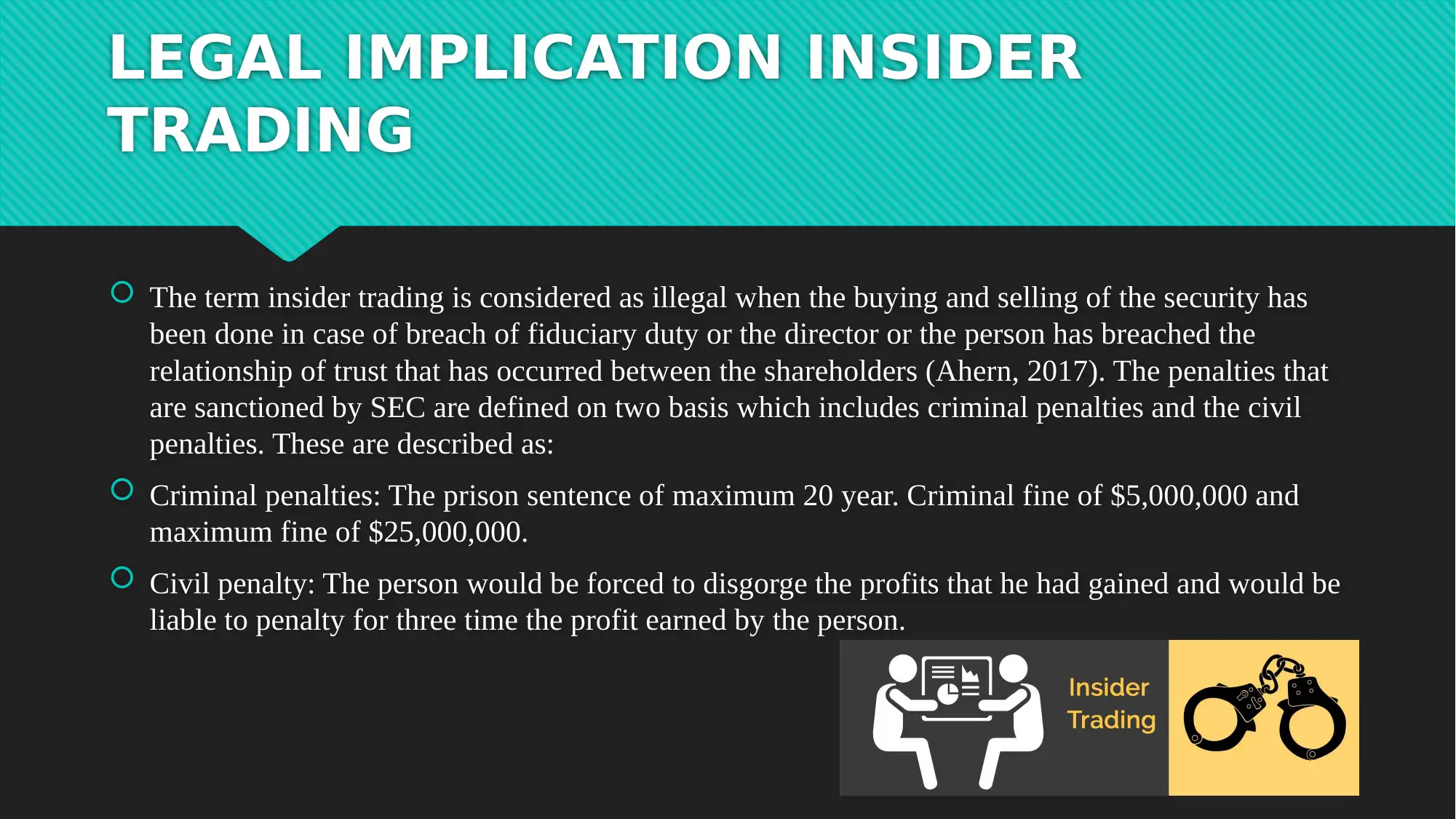

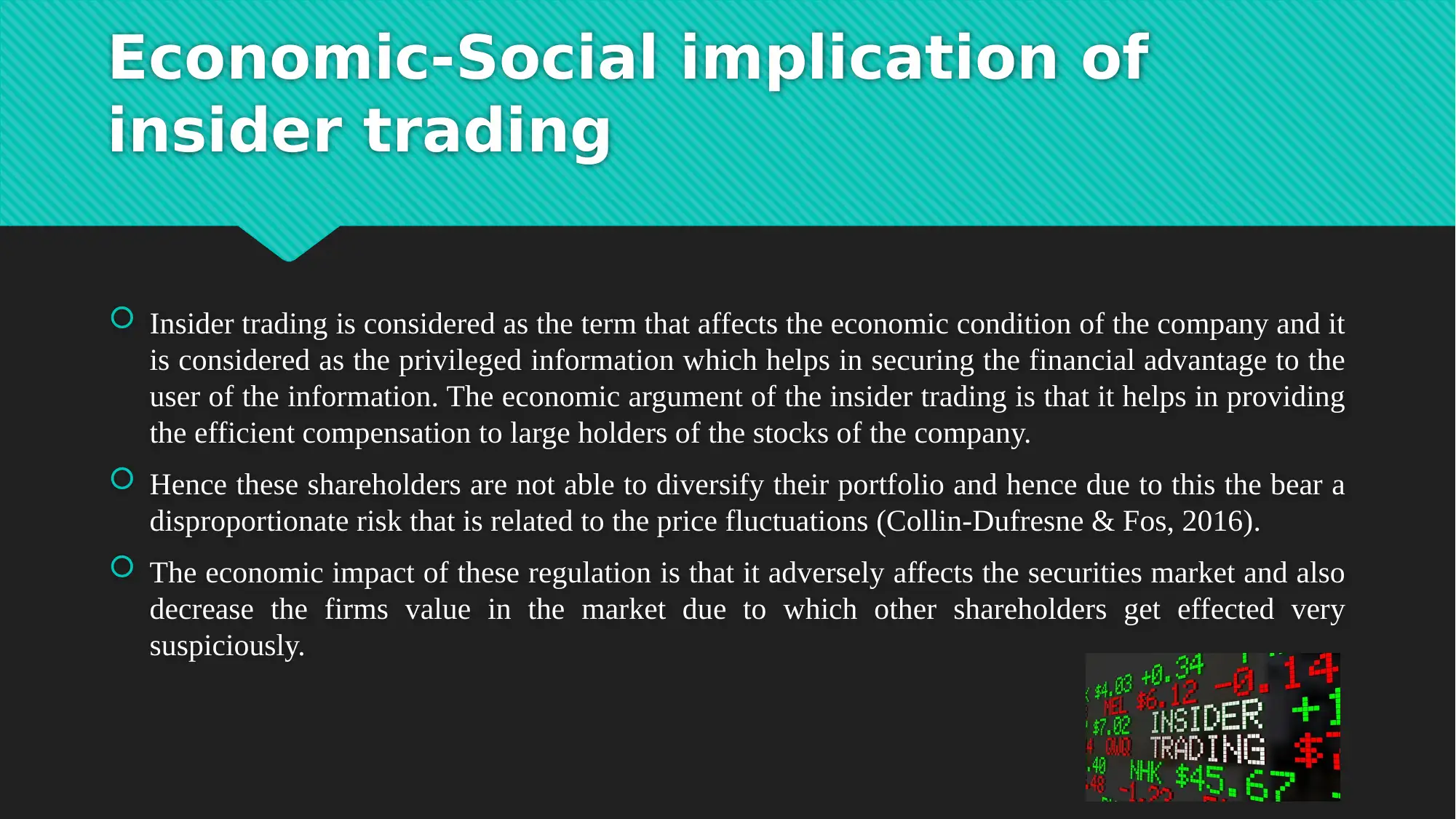
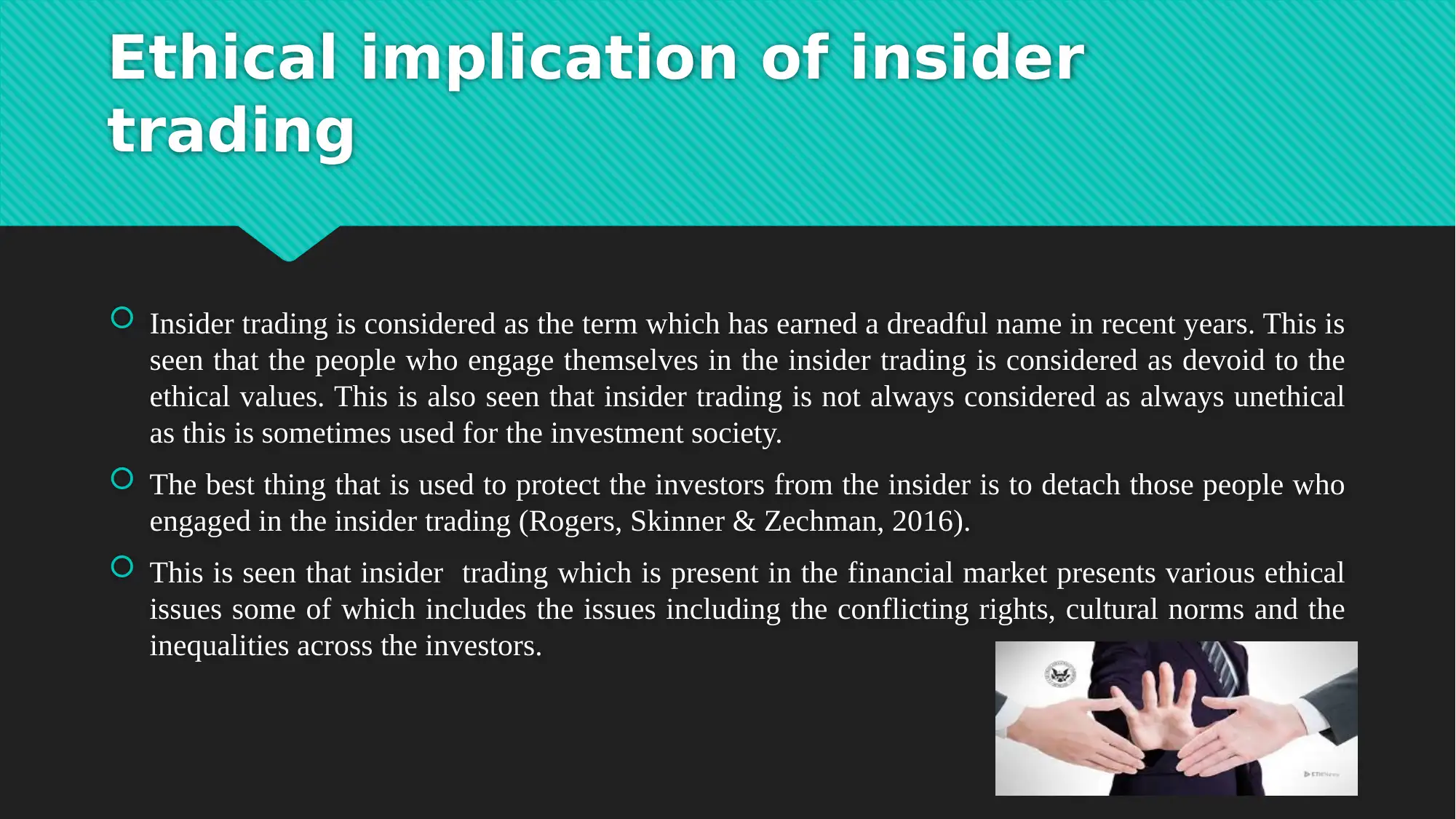
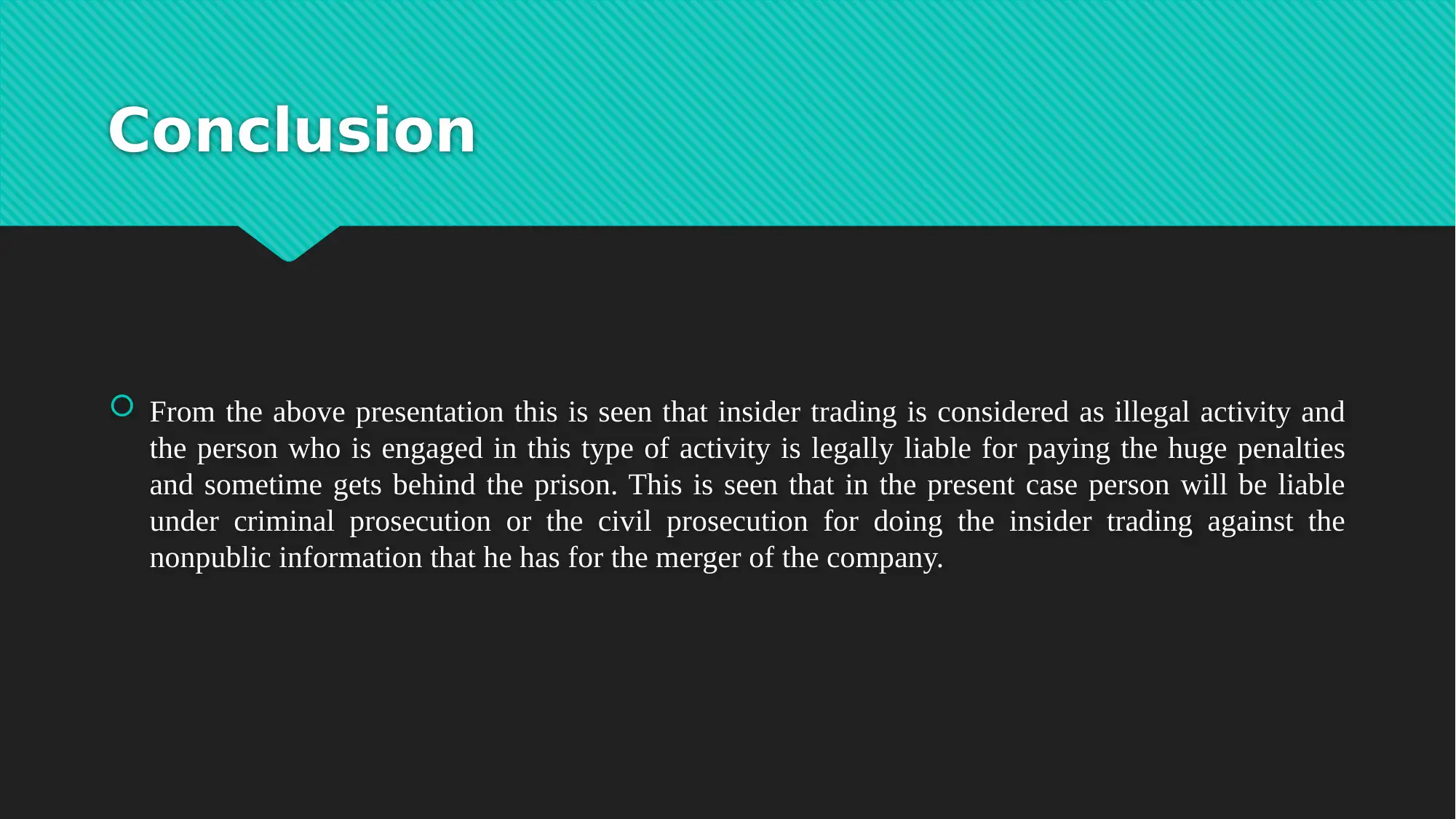
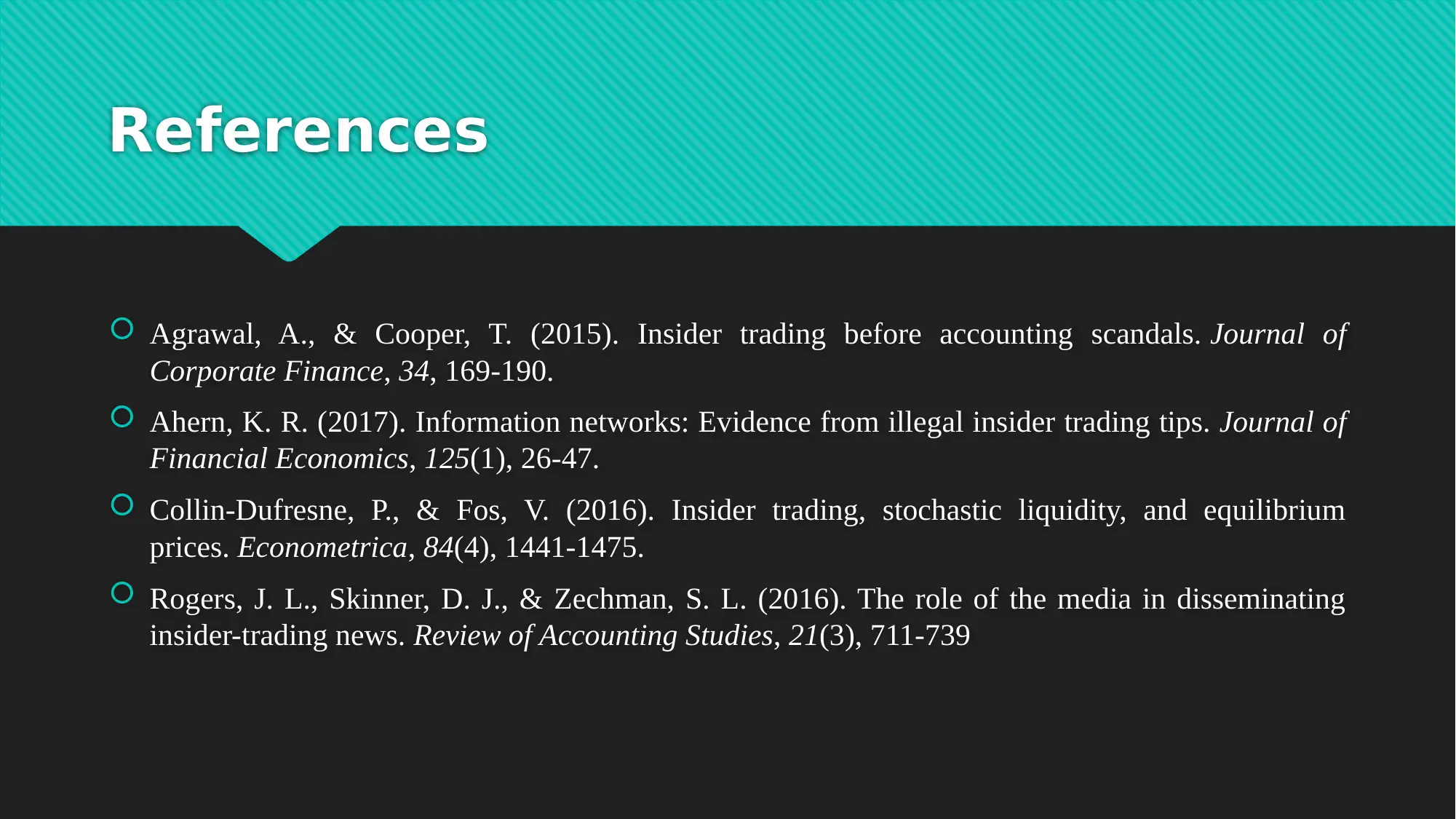






![[object Object]](/_next/static/media/star-bottom.7253800d.svg)